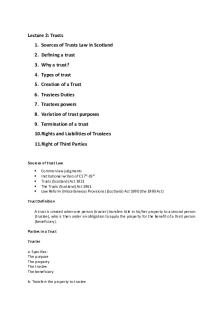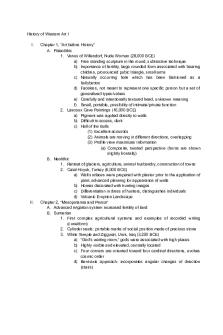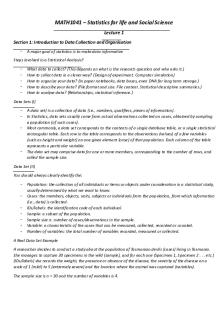Notes PDF

| Title | Notes |
|---|---|
| Author | Anonymous User |
| Course | International Law I |
| Institution | Central Michigan University |
| Pages | 10 |
| File Size | 266.1 KB |
| File Type | |
| Total Downloads | 92 |
| Total Views | 132 |
Summary
notes...
Description
CENTRAL MICHIGAN UNIVERSITY COURSE SYLLABUS I. IDENTIFYING INFORMATION MSA 501 Course: Managing Change with Emotional Intelligence Course Title: 22346866 EPN: Spring I Term: Online Location: 1/8, 3/2/2018 Course Dates: Course Days and Times: N\A Prerequisites:
LDR 200 and 86 semester hours completed; or Graduate Standing.
Blackboard: Blackboard is a web-based learning management system licensed by CMU. Within Blackboard, a course website, also known as a shell, is automatically created for every CMU course. Face-to-face courses may or may not incorporate Blackboard, whereas Blackboard course shells are always used for online courses and will be available to you prior to the course start date. Seeing the course shell listed in Blackboard with unavailable adjacent to its title is an indication that your instructor has not made it available and is in no way indicative of registration status. To access Blackboard, open a web browser and enter https://blackboard.cmich.edu/webapps/login/. After the site loads, enter your CMU Global ID and password in the respective spaces provided. Click the "login" button to enter Blackboard and then the link to the appropriate course to enter the course's Blackboard shell. If you need assistance, contact the IT Helpdesk at 989-774-3662 / 800-950-1144 x. 3662. Self-guided student tutorial resources are also available at https://blackboard.cmich.edu/webapps/login/. Al Zainea Instructor: Primary Phone Number: (989) 400-6137 Secondary Phone Number: (989) 774-3616 [email protected] E-Mail Address: Please contact to schedule an appointment Availability: Academic Biography: Director, Academic and Professional Programs, (July 2004-current); Faculty member, Recreation, Parks, & Leisure Services Administration (RPLSA) Associate Graduate Faculty rank (1997 to current). ABD: Higher Education Administration (2009); MA-Recreation Administration (1991); BAOutdoor and Environmental Recreation Administration (1989). Co-Author of the following course - MSA 501 Author of MSA 510 and LDR 200
II. TEXTBOOKS AND INSTRUCTIONAL MATERIALS Order books from MBS at http://bookstore.mbsdirect.net/cmu.htm Textbooks and Course Materials: Emotional Intelligence 2.0 - with Access Code Title: Author: Bradberry Edition: 1st 978-0-9743206-2-5 ISBN:
Publisher: Ingram Required: Yes Primal Leadership : Learning to Lead with Emotional Intelligence Title: Author: Goleman, Boyatzis, McKee Edition: 1st 978-1-4221-6803-5 ISBN: Publisher: Harvard Business School Press Required: Yes Course Reserves: N\A Required Materials: N\A Recommended Materials: N\A III. COURSE DESCRIPTION An examination of organizational leadership utilizing emotional intelligence as a foundation for managing change.
IV. COURSE GOALS AND OBJECTIVES Upon the examination of the origins, present status, and future directions of emotional intelligence as a leadership function, the student will demonstrate the ability to: 1. Research and analyze the history and domains of emotional intelligence to include emotional intelligence objectives 2. Research and analyze the forces which shape various models for emotional intelligence. 3. Research, analyze and describe change management and leadership strategies. 4. Research, analyze and report examples of emotional intelligence competencies appropriate and necessary for leadership professionals. 5.Hypothesizetheimpactofaleaderstyleontheorganization’sstrategicleadershipthroughtheuseofcasestudies. 6. Research, analyze, synthesize and report on the emotional intelligence performance of one organization leader using a strategic decision-making process, integrating previous knowledge and skills from related core courses. 7. Examine, analyze, synthesize and report on the strengths and weaknesses of strategic leadership teams in organizations.
V. METHODOLOGY The web-based course will retain essentially all the components of the face-to-face course, although the method of delivery will be modified, and sometimes enhanced by the electronic medium. Faculty-to-student and student-to-student interactions will take place through the course management software, Blackboard, using sessions moderated by the instructor as well as student-moderated sessions attended by the instructor. Such interactions may occur through email, phone, fax and postal mail. Weekly postings will identify specific reading assignments from the textbook and supplementary materials which can be downloaded from the web. Students will analyze issues, both individual and organizational, that impact managers. They will also conduct research, discuss their findings, and produce solutions in a variety of formats such as slide presentations, individual reports, and group-generated responses. Students are expected to participate in weekly discussion board postings
and/or chat sessions. Students will submit exams via the course management software to the instructor.
VI. COURSE OUTLINE/ASSIGNMENTS Pre-Class Assignment: Week 0: a. b. c. d.
Peruse Syllabus and Blackboard View Week 0 Managing Change with Emotional Intelligence Lecture Complete Discussion Board assignment Jump-start your research by familiarizing yourself with the textbooks
Course Outline: Week: 1. Part One: Introduction a. Research, analyze, and synthesize Read Emotional Intelligence 2.0 Chapters 1-4 View Chapters 1-4 Lecture and PowerPoint Read Primal Leadership text book pages 253-256 Appendix B View assigned website(s) or video(s) b. Report Take the Emotional Intelligence Appraisal and upload results Answer Discussion Board Critical Thinking Question
1. Part Two: Self-Awareness and Self-Management Strategies a. Research, analyze, and synthesize Read Emotional Intelligence 2.0 Chapters 5-6 View Chapters 5-6 Lecture and PowerPoint View assigned website(s) or video(s) b. Report Answer Discussion Board Critical Thinking Question c. Assessment Take Exam 1
2. Part Three: Social-Awareness and Relationship Management Strategies a. Research, analyze, and synthesize Read Emotional Intelligence 2.0 Chapters 7-8 View Chapter 7-8 Lecture and PowerPoint View assigned website(s) or video(s) b. Report Answer Discussion Board Critical Thinking Question c. Assessment Take Exam 2
1. Part Four: Epilogue a. Research, analyze, and synthesize Read Emotional Intelligence 2.0 Epilogue pages 225-246 View Epilogue Lecture and PowerPoint View assigned website(s) or video(s)
b. Report Submit Self Assessment Review
PrimalLeadership–LearningtoLeadwithEmotionalIntelligence (Group work assignments begin) 2. PartOne–ThePowerofEmotionalIntelligence a. Research, analyze, and synthesize Contact group members Read Primal Leadership Chapters 1-5 View Chapters 1-5 Lecture View assigned website(s) or video(s) b. Report Answer Discussion Board Critical Thinking Question
3. PartTwo–MakingLeaders: a. Research, analyze, and synthesize Read Primal Leadership Chapters 6-8 View Chapters 6-8 Lecture GroupWork–ReviewandanalyzeEIquestions View assigned website(s) or video(s) b. Report Answer Discussion Board Critical Thinking Question c. Assessment Take Group Exam 1 - Group Work EI answers Submit Self and Peer Evaluation form
4. PartThree–BuildingEmotionallyIntelligentOrganizations: a. Research, analyze, and synthesize Read Primal Leadership Chapters 9-11 View Chapters 9-11 Lecture GroupWork–ReviewandanalyzeEIquestions View assigned website(s) or video(s) b. Report Answer Discussion Board Critical Thinking Question c. Assessment Take Group Exam 2 - Group Work EI answers Submit Self and Peer Evaluation form
5. Managing Change with Emotional Intelligence Conclusion: a. Report Submit Organizational Review a. Assessment Retake Emotional Intelligence Appraisal and upload results Assignment Due Dates: See Blackboard Shell for details Post-Class Assignment:
None Student Involvement Hours: Note: The learning objectives will be keyed to reading assignments from the textbook and supplementary web materials on the course management software, Blackboard. Online activities, assignments, and self-assessment activities will guide students in mastering the learning objectives. It is anticipated that the student will spend a minimum of 15 hours per week with classroom materials. VII. CRITERIA FOR EVALUATION Evaluation Criteria: The final grades for students will be derived from the following: The methods of evaluation for this web course have been designed to be equivalent to those in the original course. The web discussion activities/assignments are equivalent to the case situations in the original course. Faculty and students may use emerging technologies such as chats to facilitate as well as evaluate oral and written communication skills. With regard to the web discussion activities/assignments, students are evaluated on their quality and well-thought out responses to postings bytheirclassmates.Individualandgroupparticipationareevaluatedonthebasisof(1)theregularityofthestudents’ postings; too many postings are just as inappropriate as infrequent postings, (2) whether the students take the leading roles in certain discussions; (3) in a group, whether the students play the roles of leaders and followers well; and (4) in a group, whether they work well together to get their projects done in time and well. For the Exams students will be evaluated on (1) their writing skills, (2) the incorporation of research from associated information fields, and (3) their responses to the questions. NOTE: Late submissions for each week are not allowed without prior permission from the instructor. Access will be made available to students for all weeks 1-8 at the beginning of the course and all assignments for each individual week are due by Saturday at midnight EST.Assignmentgradingwillbecompletedweekly…typicallybySundayevenings.
Self-Assessment Review (500points):Reportstudent’scurrentskillset(strengthsandweaknesses)withinthefour domains and 18 competencies of emotional intelligence by analyzing your Emotional Intelligence Appraisal. (8-10 page paper of synthesized work with at least 3 references).
Organizational Review* (500 points): Report on your current or previous organizational environment in regard to emotional intelligence and primal leadership. Select a subordinate, peer, supervisor, or group to analyze within your selected company. The organizational review is your opportunity to research, analyze, and discuss workplace Emotional Intelligence and Primal Leadership styles as well as other relevant theories (change management, organizational behavior, etc.). You are required to use a minimum of four resources beyond your textbooks for this paper (6 total references). The required paper length indicated below is a target and not an absolute. I am more concerned with content. Keep in mind quality verses quantity. Adherence to APA writing style is a must. Upload and submit your work in .doc via this assignment link. *For Undergraduate students: Research, analyze, synthesize and report current workplace emotional intelligence and primal leadership. The paper should focus on emotional intelligence and the six primal leadership styles within your workplace. Bibliography must include a minimum of 6 references. (8-10 page paper of synthesized work). *For Graduate students: Research, analyze, synthesize and report current workplace emotional intelligence and primal leadership. The paper should focus on emotional intelligence and the six primal leadership styles within your workplace. In addition, graduate students are required to develop a training strategy to implement emotional intelligence training into the workplace. Annotated bibliography must include a minimum of 6 references. (15-20 page paper of synthesized work).
Discussion Board (300 points): Six critical thinking questions posted in the discussion board (50 points each).
Exams (300 points): Four exams during the duration of the course (75 points each). Exams 1and 2 submitted as an individual Group Exams 1 and 2 submitted as a group
Emotional Intelligence Appraisal (200 points): Upload pre and post EI Appraisal
Total Points: 1800
Group Work: Students assigned to group by instructor Group reviews situational EI questions (provided by instructor) Group selects answers based on group discussion/analysis Group selects one member to provide answers to the instructor via email Instructor posts final score in Grade Center for all students Grading Scale: Grading scale in percentages*: 100-94 A
76-74 C
93-90 A-
73-70 C-
89-87 B+
69-67 D+
86-84 B
66-64 D
83-80 B-
63-60 D-
79-77 C+
59- E
Final Grade Example: 1640 pts earned / 1800 possible = 90% (A-) *Graduate students: The College of Graduate Studies has officially removed the grade of "C-" from the graduate grading scale. The new scale will go from "C" to "E". Therefore, a grade of C- or less cannot be applied to your degree or used towards graduation. Late Assignments: Late submissions for each week are not allowed without prior permission from the instructor. Access will be made available to students for all weeks 1-8 at the beginning of the course and all assignments for each individual week 1-7 are due by Saturday at midnight EST. Week 8 assignments are due by Friday at midnight. Assignment grading will be completed weekly…typicallybySundayevenings. Make-ups and Rewrites: By permission only in advance of due date with documented circumstances. No rewrites allowed.
VIII. EXPECTATIONS Attendance and Participation: Participation in all weekly assignments is mandatory. Academic Integrity: Because academic integrity is a cornerstone of the University's commitment to the principles of free inquiry, students are responsible for learning and upholding professional standards of research, writing, assessment, and ethics in their areas of study. Written or other work which students submit must be the product of their own efforts and must be consistent with appropriate standards of professional ethics. Academic dishonesty, which includes cheating, plagiarism and other forms of dishonest or unethical behavior, is prohibited. A breakdown of behaviors that constitute academic dishonesty is presented in the CMU Bulletin (https://bulletins.cmich.edu/). Student Rights and Responsibilities: Each member of the Central Michigan University community assumes an obligation regarding self conduct to act in a manner consistent with a respect for the rights of others and with the University's function as an educational institution. As guides for individual and group actions within this community, the University affirms the general principles of conduct described in the Code of Student Rights, Responsibilities and Disciplinary Procedures at https://www.cmich.edu/ess/studentaffairs/Pages/Code-of-Student-Rights.aspx.
IX. SUPPORT SERVICES AND OTHER REQUIREMENTS Library Research and Instruction Services As a CMU student you have full access to the services and resources of the CMU Library. Reference librarians will help you find information on your research topic and answer other questions related to the library. The library's Documents on Demand office will obtain copies of the books and journal articles for you. Check out the library's website at https://library.cmich.edu for more information. Reference librarian contact information: 1. By email: [email protected] 2. By online form: http://libguides.cmich.edu/askalibrarianform 3. By phone: (989) 774-3470. Documents on Demand office contact information: 1. By email: [email protected] 2. By online form: https://illiad.cmich.edu/ 3. By phone: (989) 774-3022.
Writing Center The CMU Writing Center is a free online service for all CMU students, providing help with grammar, citations, bibliographies, drafts, and editing of academic papers. Suggestions and feedback are typically provided within two business days. For additional information and to submit work, visit https://www.cmich.edu/global/writingcenter/Pages/default.aspx Mathematics Assistance Center The CMU Mathematics Assistance Center provides free tutoring in mathematics and statistics to students enrolled in select courses. Tutoring is available online and via telephone. To see what courses qualify and to register with the Math Assistance Center, visit http://global.cmich.edu/mathcenter/tutoring-request.aspx. ADA CMU provides individuals with disabilities reasonable accommodations to participate in educational programs, activities
and services. Students with disabilities requiring accommodations to participate in class activities or meet course requirements should contact Student Disability Services at (800) 950-1144, extension 3018 or email [email protected], at least 4 weeks prior to registering for class. Students may find additional ADA information and forms at https://www.cmich.edu/ess/studentaffairs/SDS/Pages/default.aspx Note to faculty: CMU Administration will notify you if applicable; otherwise, the student will provide a "Notification Letter to the Instructor" outlining the accommodations the student is approved to receive.
X. BIBLIOGRAPHY Bennis, W. (2003). Learning to lead: A workbook on becoming a leader (3rd ed.). Cambridge: Perseus Books Group. Bolman, L., & Deal, T. (2008). Reframing organizations: Artistry, choice and leadership (4th ed.). San Francisco: Jossey-Bass. Bradberry, T., & Greaves, J. (2009). Emotional intelligence 2.0. San Diego: TalentSmart. Dalziel, M. M., & Schoonover, S. C. (1988). Changing ways: A practical tool for implementing change within organizations. New York: AMACOM. Drucker, P. (1990). Managing the non-profit organization. New York: Harper Collins. Ekman, P. (2001). Telling lies: Clues to deceit in the marketplace, politics, and marriage. New York: W. W. Norton. Ekman, P. (2003-2006). Micro expression training tool (METT) and subtle expression training tool (SETT). Paul Ekman Company. Freiberg, K., & Freiberg, J. (1997). Nuts!:SouthwestAirlines’crazyrecipefor business and personal success. New York: Broadway Books. Freedman, J., & Ghini, M. (2010). Inside change: Transforming your organization with emotional intelligence. California: Six Seconds Emotional Intelligence Press. Goleman, D. (1985). Vital lies, simple truths: The psychology of self-deception. New York: Simon and Schuster. Goleman, D. (2005). Emotional intelligence: Why it can matter more than IQ. New York: Bantam Books. Goleman, D. (2006). Social intelligence: The new science of human relationships. New York: Bantam Books. Goleman, D. (2006). Working with emotional intelligence, New York: Bantam Books. Goleman, D. (2011). Leadership: The power of emotional intelligence: Selected writings. Northampton, MA: More Than Sound LLC. Hersey, P., & Blanchard, K. (2001). Management of organizational behavior (8th ed.).
Englewood, NJ: Prentice Hall. Hughes, R., & Beatty, K. (2005). Becoming a strategic leader. San Francisco: Jossey-Bass. Jaworski, J., & Scharmer, O. (2000). Leadership in the new economy: Seeing and actualizing emerging futures. Retrieved from http://www.solonline.org/Connections/members/RedBook4-10Final.pdf Katzenbach, J. R., & Smith, D. K. (1993). The wisdom of teams: Creating the highperformance organization. New York: McKensey & Company. Kotter, J. P. (1996). Leading change. Boston: Harvard Business School Press. Kouzes, J., & Posner, B. (2002). The leadership challenge (3rd ed.). San Francisco: JosseyBass. Kouzes, J., & Posner, B. (2003). Theleadershippracticesinventory(LPI):Participant’s workbook (3rd ed.). San Francisco: Jossey-Bass. Lasker, R., & Weiss, E. (2003, March). Broadening participation in community problem solving: A multidisciplinary model to support collaborative practice and research. Journal of Urban Health: Bulletin of the New York Academy, 80(1), 14-60. Lencioni, P. (2005). Overcoming the five dysfunctions of a team: A field guide. San Francisco: Jossey-Bass. Lencioni, P. (200...
Similar Free PDFs
Popular Institutions
- Tinajero National High School - Annex
- Politeknik Caltex Riau
- Yokohama City University
- SGT University
- University of Al-Qadisiyah
- Divine Word College of Vigan
- Techniek College Rotterdam
- Universidade de Santiago
- Universiti Teknologi MARA Cawangan Johor Kampus Pasir Gudang
- Poltekkes Kemenkes Yogyakarta
- Baguio City National High School
- Colegio san marcos
- preparatoria uno
- Centro de Bachillerato Tecnológico Industrial y de Servicios No. 107
- Dalian Maritime University
- Quang Trung Secondary School
- Colegio Tecnológico en Informática
- Corporación Regional de Educación Superior
- Grupo CEDVA
- Dar Al Uloom University
- Centro de Estudios Preuniversitarios de la Universidad Nacional de Ingeniería
- 上智大学
- Aakash International School, Nuna Majara
- San Felipe Neri Catholic School
- Kang Chiao International School - New Taipei City
- Misamis Occidental National High School
- Institución Educativa Escuela Normal Juan Ladrilleros
- Kolehiyo ng Pantukan
- Batanes State College
- Instituto Continental
- Sekolah Menengah Kejuruan Kesehatan Kaltara (Tarakan)
- Colegio de La Inmaculada Concepcion - Cebu















